Reviews
Bryan Barber
USA, 2006
Credits
Review by Adam Balz
Posted on 16 December 2012
Source DVD
Categories Rock Follies II
In 2003, the hip-hop duo OutKast released Speakerboxx/The Love Below, a double album that owned the charts, received widespread coverage, and won three Grammy Awards, including Album of the Year. (This last accomplishment is noteworthy because, as of 2012, it’s only the second hip-hop album to have taken the top prize, and it did so in a decade that saw the honor bestowed on artists such as the Dixie Chicks, Steely Dan, Taylor Swift, Herbie Hancock, Ray Charles, and the soundtrack for O Brother, Where Art Thou?— not exactly an award that can claim to have an understanding and appreciation of the modern and groundbreaking.) For some time after its release, OutKast dominated popular culture, its strange mix of music styles offering what was at the time a genuinely unique and interesting sound that much of the American public didn’t associate with hip-hop music.
While they’re remembered today almost exclusively for their impact on music, they could be just as appreciated for their effect on music videos. In an age when, as Rolling Stone noted, Southern hip hop was dominated by “booty talk and rote gangsterism,” both of which appeared ad nauseam in obligatorily thoughtless and self-aggrandizing music videos, the videos accompanying OutKast’s double album were a refreshing anomaly. Take, for example, the video for “Roses,” a song about an attractive woman named Caroline whose priorities lean towards the material—far from an original idea, regardless of singer or genre. In the hands of director Bryan Barber, however, the song transformed itself into a parody of West Side Story set during a high school assembly in which Andre 3000, in the role of a musical performer, makes fun of an oblivious Caroline in front of the whole school. It’s a funny, often strange six-minute video with allusions to Busby Berkeley and The Wizard of Oz, cameo appearances by Paula Abdul and Kevin McCarthy, and an over-the-top use of expletives and euphemisms that, when censored for broadcast, somehow manages to enhance the song’s unabashed ridiculousness. Or, as a more famous example, “Hey Ya,” which Barber fitted out with one of the most indelible pop culture images of the new century: Andre 3000 leading his own band of clones, bouncing and gyrating on stage in flashy checkered pants, green shirts, white suspenders, and a closet-worth of different hats, ties, and jewelry. Thought an argument could be made against the ingenuity of the songwriting - much of it is just the same words and phrases repeated over a catchy beat - there’s little doubt that the music video is all about an artist enjoying himself, his craft, and the chance to not take himself seriously at all.
Which makes what happened in 2006 all the more bewildering. Both Andre 3000 and Big Boi - as Andre Benjamin and Antwon A. Patton, respectively - starred in Barber’s debut feature Idlewild, a musical built around songs primarily written and performed by both men. The cast featured a wide swath of talent from the past and present - Terrence Howard and Ben Vereen, Macy Gray and Patti LaBelle, Paula Patton and Cicely Tyson, Ving Rhames and Bill Nunn - complemented by comedic actors like Faizon Love and Bruce Bruce. And the basic premise - a speakeasy in Depression-era Georgia risks being taken over by gangsters while its musical souls, a singer and a piano player, find themselves torn between good and bad - promised something fun, exciting, and rife with visual possibilities. What we got was anything but.
At the center of the film are Rooster (Andre), a singer who drinks and gambles, and Percival Jenkins (Big Boi), a songwriter and piano player by night who spends his days working at his father’s morgue, a business he’s destined to inherit and run until he himself is an old man. Rooster is drawn into the criminal world when his boss is killed and the speakeasy’s debt is passed on to the next in line, but he wants out. Jenkins, on the other hand, wants to please his father but finds himself inexplicably drawn to a new woman in town claiming to be Angel Davenport, a famous singer. Over the course of the film, as each man fights their own smaller battles - with divas, rowdy crowds, and the weather - they also struggle internally over what their future will look like and whether they’re willing to give up what they want to be for what they’re told they have to be. It’s an interesting if basic premise that, in the hands of a capable and experienced filmmaker, would have become something deeply rewarding. But for whatever reason - the plodding storyline, the distracting special effects, and the unforgivably forgettable soundtrack, which earned positive reviews but produced almost nothing lasting or appropriate for the film’s varying moods or subplots - the film doesn’t get anywhere near this possibility.
When I first saw Idlewild almost seven years ago, my initial reaction was something akin to resentment: I couldn’t understand why a film featuring such legendary performers would give them such meaningless and forgettable roles. As Percival’s father, Ben Vereen has the task of counteracting the loud, euphoric atmosphere of the speakeasy by being cold and emotionless, giving his son a clear contrast with Angel: the loving against the loveless. We get a scant few scenes in which Jenkins’ father is little more than an underdeveloped prop on which his son - and, in a way, the audience - is forced to construct a backstory to explain why this old, beaten-down man is acting the way he is towards his child. Rewatching the film recently, I was sure I’d discover a long-forgotten scene resembling this, but all that appears are scenes in which father and son share an awkward silence. Other supporting actors are similarly underused: Patti LaBelle appears only once, as a demanding speakeasy diva, and is never actually given the chance to sing, and Cicely Tyson shows up as an old grandmother who proclaims Rooster an angel - one of the film’s most transparent attempts at creating a symbolic bridge between the two main characters.
Rewatching Idlewild, I was struck by how straightforward it attempts to be, with little of the goofy humor of OutKast’s music videos. Suddenly the gifted artists behind the film’s entire existence - two accomplished singer-songwriters and one imaginative writer-director - were taking themselves a little too seriously. Perhaps the most tragic, even ironic, aspect to the entire endeavor is that its lasting impact was not of collaboration and creation but of separation and near destruction. The film, which has at its center two men being pulled in two different directions - between the vibrant, music- and love-filled world of a speakeasy and the quiet, loveless world of a morgue; between the threats of organized crime and the safety and success of a popular business - can now be seen as a reflection of the uneasy relationship between Andre 3000 and Big Boi. In reviewing their double album and discussing the gulf that had grown between both men and their respective styles, Rolling Stone presents the Grammy-winning pop-culture monster that was OutKast as less of a collaboration and more of a custody-agreement of their intertwined talents and voices. Even in Idlewild, their last major project together, the two men rarely appear together on screen, existing in two completely different stories at the same time. In the years since, Andre and Big Boi have mostly gone their separate ways, and it wasn’t until this year that a full-fledged reunion became a realistic possibility. On the evidence of Idlewild, there’s still a long way to go before the singer and the songwriter - the businessman and the hopeless romantic - can take the stage together once again.
More Rock Follies II
-
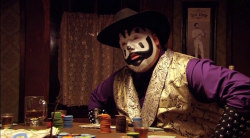
Big Money Rustlas
2010 -
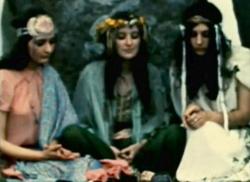
Be Glad for the Song Has No Ending
1970 -
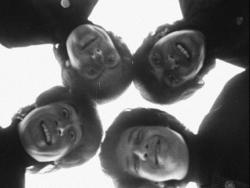
The Rutles: All You Need is Cash
1978 -
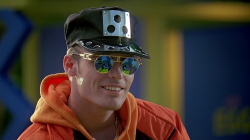
Cool As Ice
1991 -
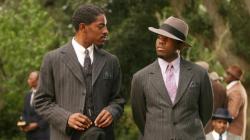
Idlewild
2006 -
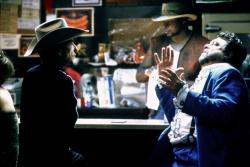
Masked and Anonymous
2002 -
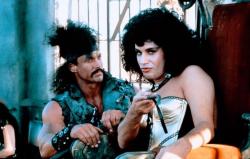
Never Too Young to Die
1986 -
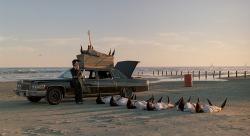
Leningrad Cowboys Go America
1989 -
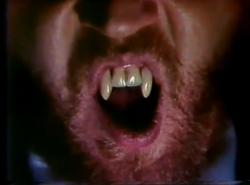
Son of Dracula
1974 -
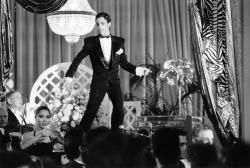
Under the Cherry Moon
1986 -
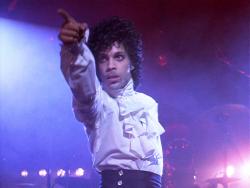
Purple Rain
1984 -
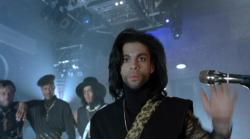
Graffiti Bridge
1990
We don’t do comments anymore, but you may contact us here or find us on Twitter or Facebook.



